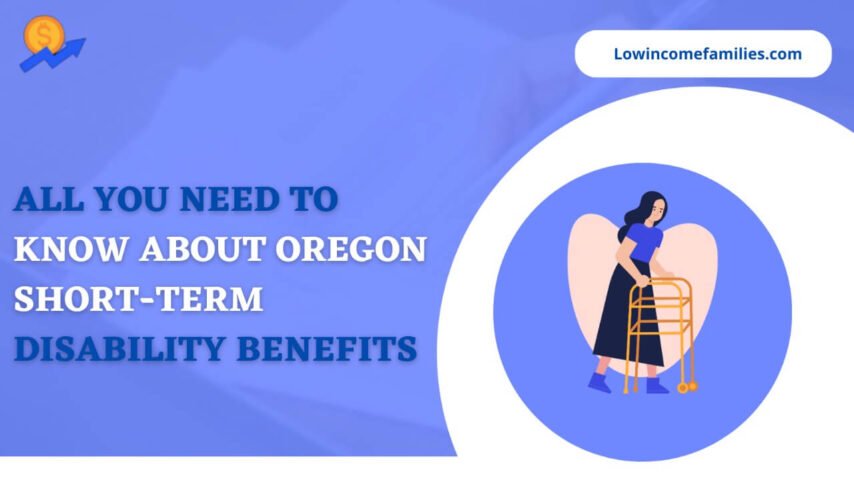Did you know that in Oregon, all private employers are required to carry short-term disability insurance for their employees? This coverage can help protect your income if you become temporarily unable to work due to a non-work related injury or illness.
Understanding the details of Oregon’s short-term disability benefits is important for anyone who may need this type of coverage at some point in their life.
What Are The Eligibility Requirements For Short-Term Disability Insurance In Oregon?
In order for an employee in Oregon to qualify for short-term disability benefits, they must meet certain criteria set forth by their employer’s policy as well as state laws. Generally speaking, most policies require that employees have worked for the company for at least 12 months before being eligible for coverage, although some companies may have shorter time frames depending on their policy requirements.
Additionally, most policies require that employees be actively working when they become disabled in order to be considered eligible for benefits.
How Do I file A Claim For Short-Term Disability Insurance In Oregon?
Once you’ve determined that you meet all of the qualifications for filing a claim, it is time to fill out and submit your application. The application is available on the website of the Oregon Employment Department and should be filled out completely and accurately.
It is important that you follow all instructions carefully while filling out your application as any errors or omissions could lead to delays in processing or even denial of your claim. You will also need to provide proof of employment such as pay stubs, W2s, tax returns, etc., so make sure that these documents are ready before submitting your paperwork.
Once your application is submitted and accepted, it will typically take up to 2 weeks for processing and approval. Once approved, you can expect payments within 7-10 business days after approval depending on which payment method you have chosen (direct deposit or paper check).
Check Also: Short Term Disability In Ohio [Check Eligibility & Benefits]
The Most Common Reasons For Denied Claims For Short-Term Disability Insurance In Oregon
Understanding the reasons for denied claims for short-term disability insurance in Oregon can help you make informed decisions when filing a claim, and can ensure that you have all of the necessary documents and information ready in order to avoid delays or denials.
Keep reading to understand the most common reasons for denied claims and what you can do to ensure your claim is approved.
-
Incorrect Information Provided By Claimant
One of the most common reasons a disability insurance claim is denied is because the claimant has provided incorrect or incomplete information. This can include incorrect dates of birth, incorrect addresses, incorrect Social Security numbers, or other inaccurate information on either their application or any additional paperwork that needs to be completed and submitted.
In order to prevent this issue from occurring, it’s important to double check all of your information prior to submitting your application and making sure that all documentation is up-to-date and accurate.
-
Insufficient Medical Evidence
Another common reason for denied claims is a lack of sufficient medical evidence. In order to properly process a short-term disability insurance claim in Oregon, claimants must provide substantial medical evidence proving that they are unable to work due to an illness or injury.
Without sufficient medical evidence, an insurer may choose not to approve a claim as they cannot verify its legitimacy. To prevent this issue from occurring, claimants should make sure that they have comprehensive medical records available for review prior to filing their claim.
-
Failure To Follow Instructions
Another potential cause for denied claims is failure to follow instructions when submitting paperwork or completing forms related to the claim process. Insurers often request specific documentation such as doctor’s notes or employment records as part of their evaluation process; if these instructions are not followed correctly it could result in a delay or denial of your disability insurance claim.
To avoid this issue, always pay close attention when filling out forms or submitting paperwork associated with your claim in order to ensure accuracy and completeness.
Frequently Asked Questions
When will my short-term disability insurance in Oregon Benefits begin?
Benefits typically begin on the 8th day of disability, but this can vary depending on your policy. Be sure to check with your insurance company to find out the exact start date for your policy.
How long will my short-term disability insurance in Oregon benefits last?
The length of time that Oregon short-term disability insurance benefits will last depends on the type of policy you have. If you have purchased a standard short-term disability insurance policy, the benefit period can be anywhere from two weeks to one year.
If you have an extended or supplemental plan, the benefit period can range from two years up to six years.
Additionally, some policies may include a rehabilitation period that could further extend the length of time for which benefits are paid. Speak to your insurance provider for more information about the specific features and benefit periods of your policy.
What are the maximum short-term disability insurance in Oregon benefits?
In Oregon, short-term disability insurance (STD) benefits vary by policy. Generally, most policies pay out up to 60% of the insured’s average gross income, with a maximum benefit of $1,000 per week.
Policies may also have a maximum benefit period of up to 26 weeks. Other factors, such as the insured’s age and occupation, may also affect the amount of benefits an individual can receive.
What is the waiting period for short-term disability insurance in Oregon?
In Oregon, the waiting period for short-term disability insurance is seven days. This means that if you become disabled due to a covered illness or injury, your benefits will begin seven days after the onset of your disability.
There are some exceptions to this rule, such as for pregnancy-related disabilities, which may have a shorter waiting period.
Are there any exceptions to the waiting period for short-term disability insurance in Oregon?
Yes, there are some exceptions to the waiting period for short-term disability insurance in Oregon. For example, if the insured is disabled due to an accident or illness that occurred within the first 30 days of coverage, benefits may be payable without a waiting period.
Additionally, if the insured has creditable coverage for at least 60 days prior to the disability and has no break in coverage, then benefits may be payable without a waiting period. Finally, the insurer may waive the waiting period in certain hardship situations.
Conclusion:-
Oregon’s short-term disability benefits provide peace of mind and financial security should something happen that causes an employee not to be able to work due to an illness or injury that is not related to their job duties.
Knowing what these benefits cover and understanding eligibility requirements are key when it comes time to make sure you are taking advantage of all available options if something were to ever happen and you find yourself needing this type of coverage in the future.












